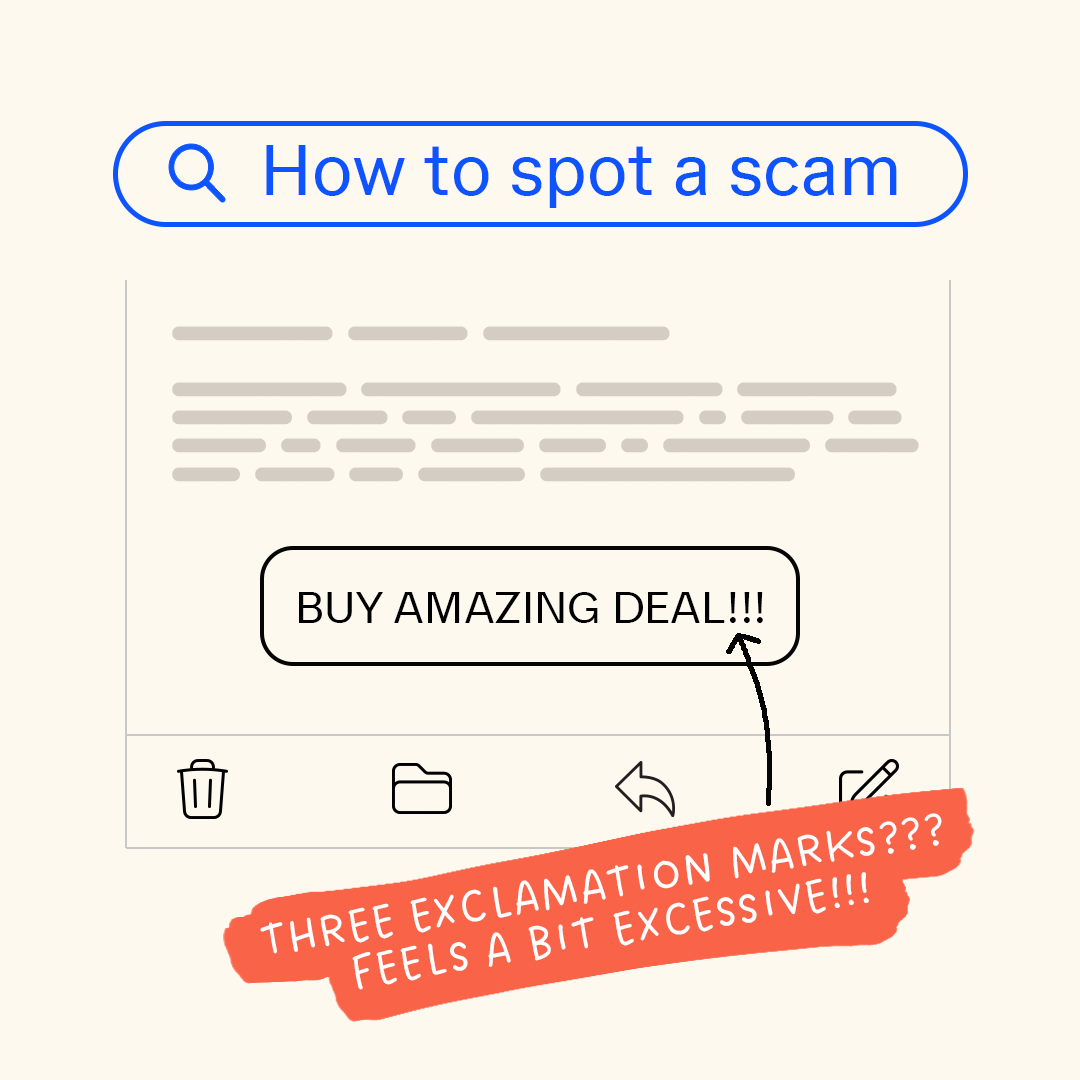Scams to watch out for this shopping season
Tis the season to shop til you drop, but bargains aren't all you need to watch out for. This time of year is also rife with scammers, trying to take advantage of dodgy emails and texts that promise a deal or discount that almost always sounds too good to be true.

Scamwatch says that Aussies have lost $400 million in 2023 so far due to scams (January to September 2023), and online shopping attempts are the third most common scam.
Ask any expert and they’ll say that if you know what you’re looking for, it’s easier to spot a scam.
To help you learn the key things to look for, here’s how to spot the most common signs that can expose scams doing the rounds right now.
You can always find a more comprehensive list of current scams on our Active Scams page. Bookmark it, and share it with everyone you know that might need a helping hand spotting a scam.
How to spot some common scams

You can’t be too careful when you’re shopping online
Seasonal peaks in shopping and sale events also mean more emails from businesses. It’s the perfect opportunity for scammers to slip in a dodgy email linking to a fake website.
Fake emails are always getting more sophisticated, changing from the usual spelling mistakes and poor grammar to slick, sophisticated attempts that have been tweaked with AI.
More than anything else, be sceptical. If an offer seems too good to be true, it probably is. Do your research on where the deal’s coming from – and whether it’s a good deal – before rushing in!
Keep an eye out for inconsistencies, unfamiliar greetings, or emails asking you for information. Don’t share your personal details, including credit card info, unless you know who’s using them and what they’re for.

Don’t be rushed, take your time
Scammers that target Aussies know how we live – they know we love a good deal, that we shop online and get parcels delivered regularly.
You might get contacted by someone with a great deal or discount for a business, or by a courier that needs something from you to deliver your package, or someone claiming you haven’t paid them.
All these scammers rely on the sense of urgency to get you to take action quickly and without thinking. Don’t be rushed, and don’t let anyone railroad you into sharing something you don’t want to.
If you’re unsure, or if the situation is unexpected – like a phone call asking about a bill that apparently needs paying today – just remember you can hang up the call or close the email. It never hurts to take your time and think things through, especially when money is involved.
Reach out to the business or organisation yourself, using an official channel like their official app, or a phone number you’re sure of, to make sure you’re not being misled by someone else.

Pay attention to how you’re paying
A legitimate business will have a payment processor that offers common methods like Visa or Mastercard credit cards, as well as PayPal and other systems.
To avoid getting caught out, be sure who you’re paying by confirming that the business details match what you expect. If the checkout looks weird or dodgy, trust your gut and be extra cautious.
Your bank might cover some fraudulent losses over credit card purchases, but don’t assume – check your terms and conditions so you’re sure.
Simple scam tips to keep in mind
In short - be suspicious of who’s contacting you, be sceptical of deals that seem too good to be true, and don’t let anyone rush you into something you’re not sure of.
Keep these tips in mind when you’re browsing.
Bookmark us for later, and check back here if ever you want a refresher. We'll also be sharing more hallmarks of common scams on this page as they evolve.
If your friends ever ask if you know about scams, you’ll be prepared - and you can share this page with them.
Happy shopping!